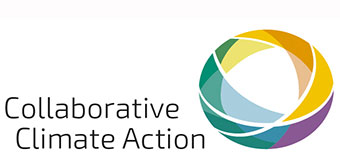German national urban climate policy instruments and programmes
When taking stock of German federal instruments and programmes for urban climate policy, we see that federalism is key. Germany’s federal states or ‘Laender’ have the competence to pass legislation and assign tasks, giving them extensive powers to influence municipal policies. Municipalities are subject to self-government, in other words being responsible for ‘all the affairs of the local community’. Hence, in Germany, effective power over urban climate policy is a matter of subnational competence.
With respect to federal influence on urban climate policy, national tools rely on fiscal support to promote urban climate action. A key instrument is the National Climate Initiative (NKI) under the auspices of the Federal Ministry for the Environment, Nature Conservation and Nuclear Safety. Its objective is to harness the potential of cost-efficient climate protection measures and thus contribute to Germany’s national climate targets. Since it was established, almost 29,000 projects have been set up, accumulating investment of EUR 905 million over the last decade from 2008 to 2018. Dedicated support for cities is channelled through the ‘Municipal Directive’, a sub-instrument of 12 individual programmes covering strategic and investment funding priorities. The programmes range from support for expansion of bicycle traffic to process engineering in sewage plants. Thanks to continuous and independent evaluation of the NKI, programmes are dynamically adjusted to improve their response to the municipalities’ needs and to support national climate targets effectively.
In addition to the Environment Ministry’s investments into urban climate protection, the Federal Ministry of Transport and Digital Infrastructure, the Federal Ministry of Economics and Technology and the Federal Ministry of the Interior have all conducted fiscal urban programmes. Support is mostly provided to sector-specific programmes, notably in the area of transport and buildings. Another major federal instrument advancing urban climate protection is the recent ‘Immediate Clean Air Programme for 2017-2020’. As a response to the Dieselgate scandal and Germany perennially exceeding air quality standards, federal funds have been allocated to mitigate air pollution and discharge for municipalities and citizens in the short-term. In light of public pressure and to achieve rapid improvements, instead of setting up new instruments, funds have been largely integrated into existing federal and regional climate programmes.


